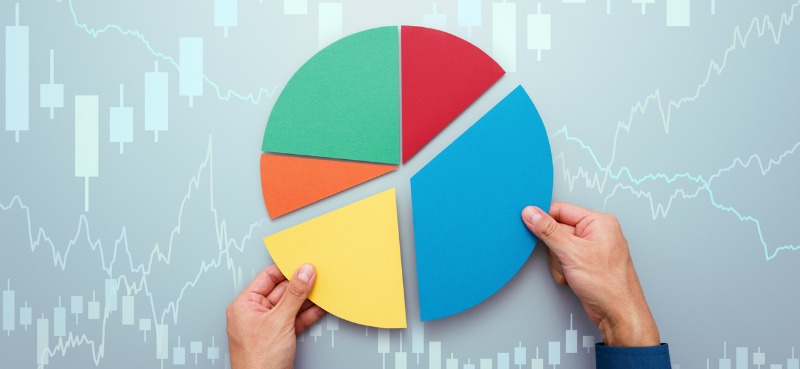It’s no secret that in times of economic crisis, investors often buy hedges like gold, government bonds, and cryptocurrencies… and if the last few months are any indication, the economic impact of the coronavirus will be like nothing we’ve felt before.
But you wouldn’t know it from looking at the market.
Stocks are hitting new highs, and forward earnings are optimistic… Meanwhile, zero-interest policies and a potentially multitrillion-dollar stimulus are making it almost pointless to hold cash (or buy government bonds). We can’t print money forever and expect the value of the dollar to hold.
We also can’t realistically expect the market to continue higher without any actual value in the dollars behind the rise. Eventually, something has to give…
But you can protect yourself.
Cryptocurrencies were created as a hedge against fiat currencies and the kind of runaway money-printing we’re seeing today.
For example, bitcoin (BTC) is an excellent hedge against this kind of inflation. Its limited supply and decentralized framework mean that there will only ever be 21 million BTC created, and no single entity or group has control of its production. There are also measures that ensure the 21 million BTC are gradually introduced into the market.
But bitcoin is just one of over 5,000 cryptos on the market today, and owning them isn’t quite as simple as buying a stock. It can also be a daunting process for first-time crypto buyers.
But don’t be overwhelmed by the giant list of crypto options. An investor who wants to use cryptos as a hedge or small portion of their portfolio can focus on the top 5–10 largest cryptos.
Where to look
If you’re new to the crypto space, the best and most well-known names are a good place to start… like bitcoin (BTC), ethereum (ETH), and Bitcoin Cash (BCH).
And you’ll want to use a site like CoinMarketCap or DexIndex (which focuses on Ethereum-based crypto purchases) to determine which exchange is offering the best price.
From there, it’s just like using a search engine. Simply enter the details of the crypto you’re looking for, and you’ll see a list of exchanges and rates. For example, here’s what the Dai (DAI) stablecoin looks like on both CoinMarketCap and DexIndex.
How to buy
One of the easiest ways to purchase cryptocurrencies is through U.S. exchange Coinbase.
It’s as simple as downloading the Coinbase app to your phone and creating an account using your email and a password. You receive a confirmation email and secure your account with a confirmation text.
Then you verify your identification by giving them your name, date of birth and last four digits of your social… link your bank account through the app… and you can start buying cryptos.
This process takes less than 10 minutes.
Not all cryptos can be bought on Coinbase, however. Exchanges like Uniswap and Kyber are great alternatives, but they do limit you to exchanging cryptos for cryptos vs. buying with cash (like Coinbase). These exchanges may not be as well-known as Coinbase, but they’re safe and well-respected in the crypto community.
These sites are a bit more complicated to use than Coinbase, so that’s probably the best option for first-time crypto buyers.
Storage options
The concept of holding or storing cryptos (what’s known as “custody”) in a digital wallet can be a bit confusing, but it’s easy to understand when compared to everyday online banking.
Like a bank account and PIN, a crypto wallet is accessed with a unique public and private ID number (or string of text).
Digital crypto wallets work in a similar way. Your public ID is accessible and indicates who owns the funds (cryptos in this case), while the private ID is required to add or remove funds in the account. Anyone with both IDs can access your cryptos, and a decentralized network means there’s no “forgot password” database if you forget. If you lose your ID, you lose your cryptos… possibly forever.
In terms of finding a wallet that’s right for you, Bitcoin.org’s “Choose Your Wallet” tool is a great place to start if you’re looking to own bitcoin, while the Balance provides a regularly updated guide to the best wallets on the market today. (Don’t worry about the “Bitcoin” in the title. The wallets featured can be used with nearly any crypto.)
Wrapping up
Stocks may be hitting new highs, but a devalued dollar only goes so far… And zero-interest policy and another trillion-dollar stimulus will only fuel the dollar’s plunge.
Gold may still be a safe hedge in today’s economy, but the rise of cryptos and bitcoin—now pushing $10,000 per BTC—show that more investors are turning to cryptos as a hedge in this time of crisis.
If you’re looking to invest in cryptos, we hope this guide gets you off on the right foot.
| Chris Gaarde Contributing Editor, The Token Tracker |
P.S. Are you invested in bitcoin or cryptos as a hedge in today’s market? If not, what’s stopping you? Let us know here.

















